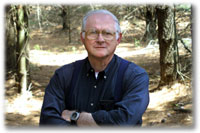LOST
A LONG-TIME FRIEND Jerry Apps
photo.
I lost a long-time friend a few weeks
ago—David Kolka. He was 85. One of those “salt of the earth” persons as we
used to call them when I was growing up on the farm. . The Kolka farm was about a mile west of our
farm, across the road from my Grandfather Bill Witt’s place. Dave was a couple years younger than me. He along with his brother Jim, six months
younger than me, were the first kids my younger brothers and I got to know. I’ve known the Kolka boys for more than 80
years, since we all were little guys and figuring out what having a friend was
all about.
The Kolka boys, my brothers and I
attended the Chain O’ Lake one-room country school. We played softball together; we performed in
Christmas programs together. We helped
each other with our school work.
When we got old enough, we hunted
squirrels together on cool fall, Sunday afternoons. We hunted deer together and went ice fishing
together. Dave and Jim were our best
friends.
Dave was quiet, never said a lot, but
when he said something, you’d best listen, because he usually had something to
say. Society was—still is--filled with talkers.
But many of them have little to say.
In fall 1955, when I was waiting to
go into the army, and my brother Donald was waiting to go to barber school,
Dave, Jim, Don and I raked cranberries by hand in a cranberry marsh near
Wisconsin Rapids. It was a cold, wet,
miserable, back-breaking job. Did Dave
Kolka complain—nope. The rest of us
did. But not Dave. He was one of the best cranberry rakers in
the bog.
My two brothers and I, along with
Dave’s brother, Jim, all left the farm. Dave
stayed on the farm where he had grown up, and farmed until he retired. He was a supervisor for the Town of Rose, and
for many years served on the Waushara County Board. Dave is survived by Lois, his wife of 57
years, two daughters and a son, his brother Jim plus several grandchildren.
I will miss him. He was a great guy.
THE OLD TIMER SAYS: It’s hard to lose
an old friend.
WHERE
TO BUY MY BOOKS
Buy from your local bookstore, or buy online from the Wisconsin
Historical Society bookstore, https://shop.wisconsinhistory.org/books, bookshop.org, or purchase from the Friends of the Patterson
Memorial Library in Wild Rose—a fundraiser for them. Phone: 920-622-3835 for
prices and ordering, or contact the librarian: barnard@wildroselibrary.
Patterson Memorial Library
500 Division Street
Wild Rose, WI 54984.
www.wildroselibrary.org
If you live in the
western part of the state, stop at Ruth’s home town, Westby, visit
Dregne’s. and look at their great
selection of my books. Order a book from them by calling 1-877-634-4414. They
will be happy to help you. If you live
in northcentral Wisconsin, stop at the Janke bookstore in Wausau (phone
715-845-9648). They also have a large
selection of my books.



.jpg)

